How to prevent burglary – the best ways to protect your home, approved by security experts
Keep thieves away and protect your home with these top tips
Katie Sims
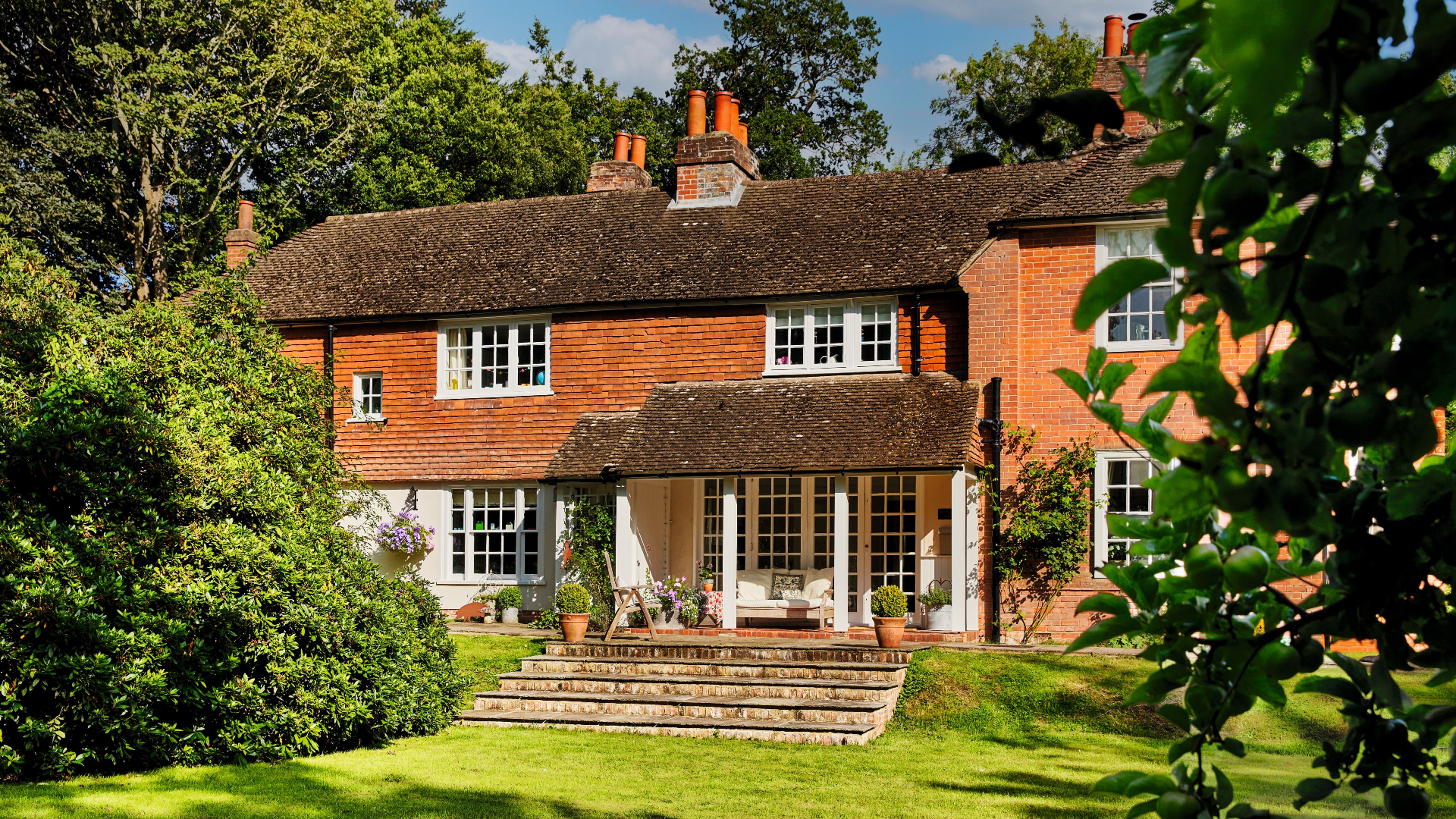
Sign up to our newsletter for style inspiration, real homes, project and garden advice and shopping know-how
You are now subscribed
Your newsletter sign-up was successful
We hope you never have to deal with burglars visiting your home, but it's unfortunately a common occurrence, especially at this time of year. Knowing how to prevent burglary is the best thing you can do to protect your home and all its precious contents.
The good news is that there are lots of things you can do to avoid a burglary. Beyond investing in the best home security system, knowing how to prevent burglary effectively involves simple tips and tricks that will make a big difference in protecting your home.
'When it comes to keeping our homes and possessions safe - especially sentimental items that are impossible to replace - it’s far better to take a proactive approach,' says Adam Pawson, Marketing Director, Safestyle. 'Luckily, there are some simple things we can all do to deter burglars.'
Our essential guide will tell you everything you need to know about how to prevent burglary, including the common things that make houses an easy target for thieves. The expert-approved methods we've put together will protect your home indefinitely.
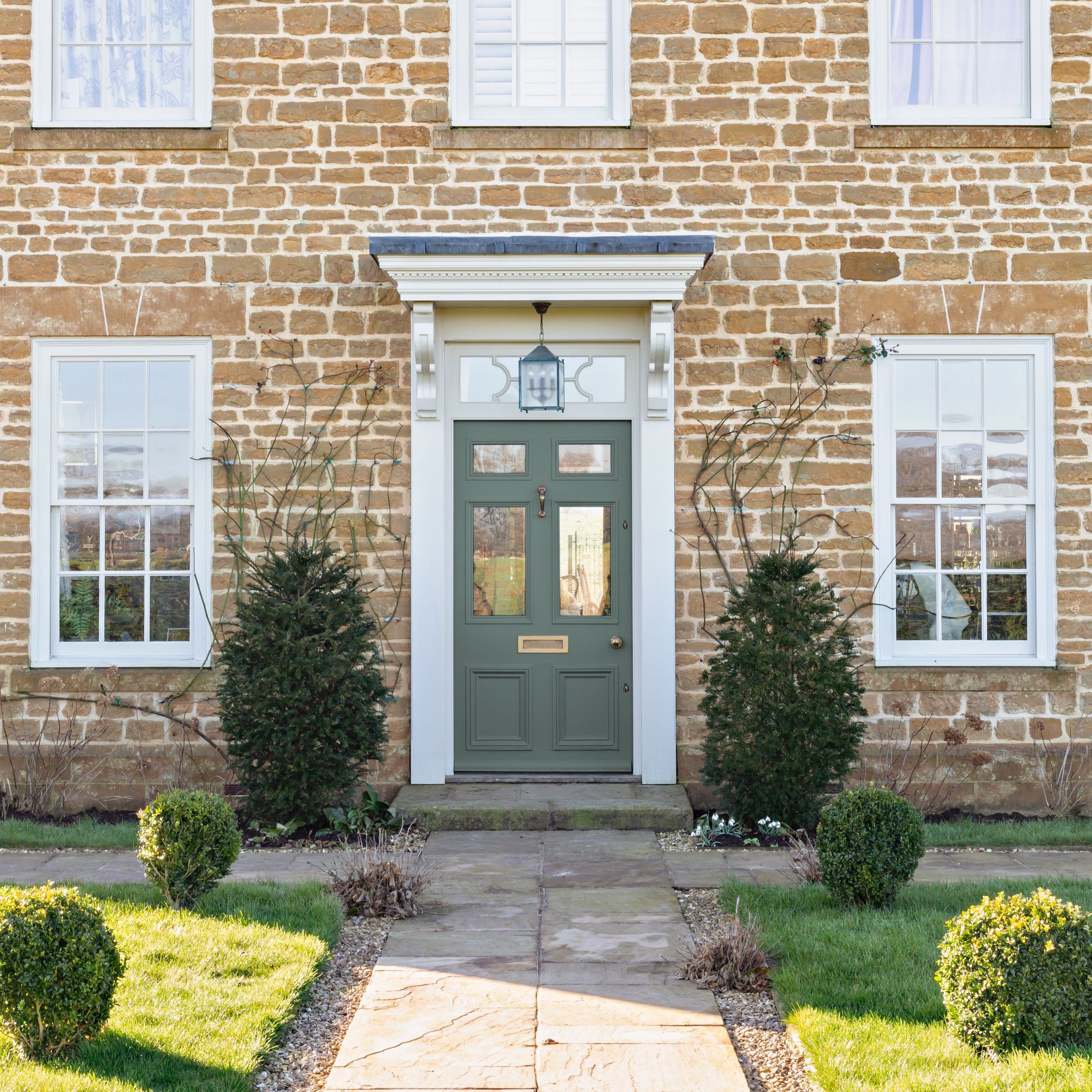
How to prevent burglary
According to data from ADT, 276,880 burglaries happen in the UK during the late spring into early summer months. Burglars take the opportunity to break in as we jet off on holiday and leave our homes empty. We've asked the experts to share their top tips on how to prevent burglary, so you can get clued up and stop yourself from becoming an easy target.
How do burglars choose houses?
To learn how to prevent a burglary, you first need to learn to think like a burglar. What features do they look for before they break into a property?
1. Windows without curtains or blinds
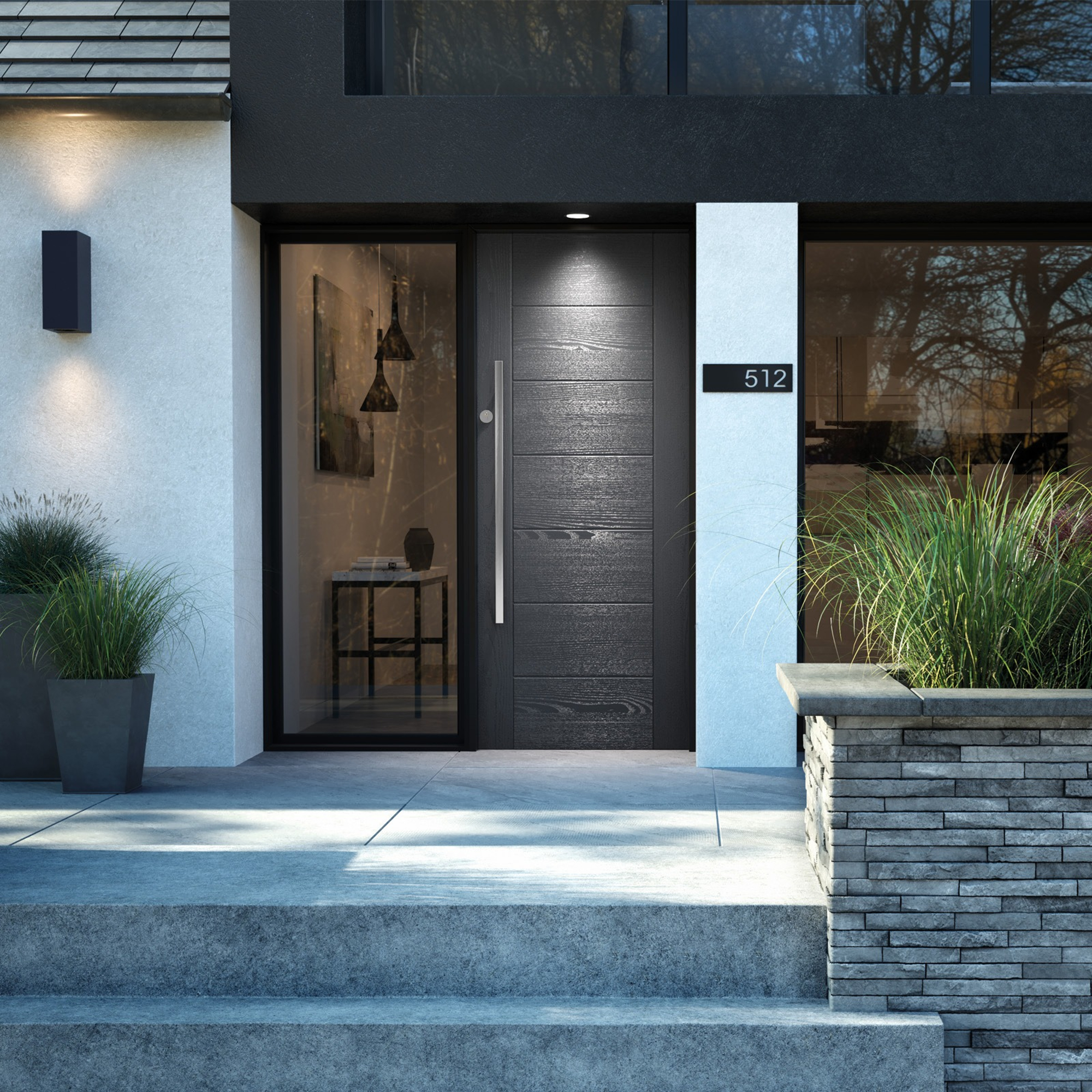
This may seem like an obvious point, but leaving your interior on display is a form of asking for it when it comes to burglary.
Sign up to our newsletter for style inspiration, real homes, project and garden advice and shopping know-how
‘The first thing a burglar will do is check the front of your property – if your windows aren’t obscured they know you don’t care very much about security,' explains former burglar turned security expert Michael Fraser on This Morning. 'Always leave your blinds down when you’re out of the house to prevent people from seeing what’s inside.’
2. A poor lock
Lock picking is still very widely practised by burglars, and you will be surprised by how many locks aren’t up to the task of resisting being tampered with.
A great tip to see if your cylinder is an ideal target for lock-snapping attacks and should be replaced is the £1 tip. Get a £1 coin and if your cylinder is protruding more than the depth of a £1 coin, then it can easily be attacked by criminals. You can learn how to fix a door lock yourself relatively easily.
Michael Fraser also points out that a door that's using only one out of two locks is a good burglary target. 'If you don't engage the [second] deadlock, the burglar can tell. They will put a foot up against the door and push, and can tell that lock isn't engaged. So don't have two locks and not use them,' he insists.
3. Old door handles
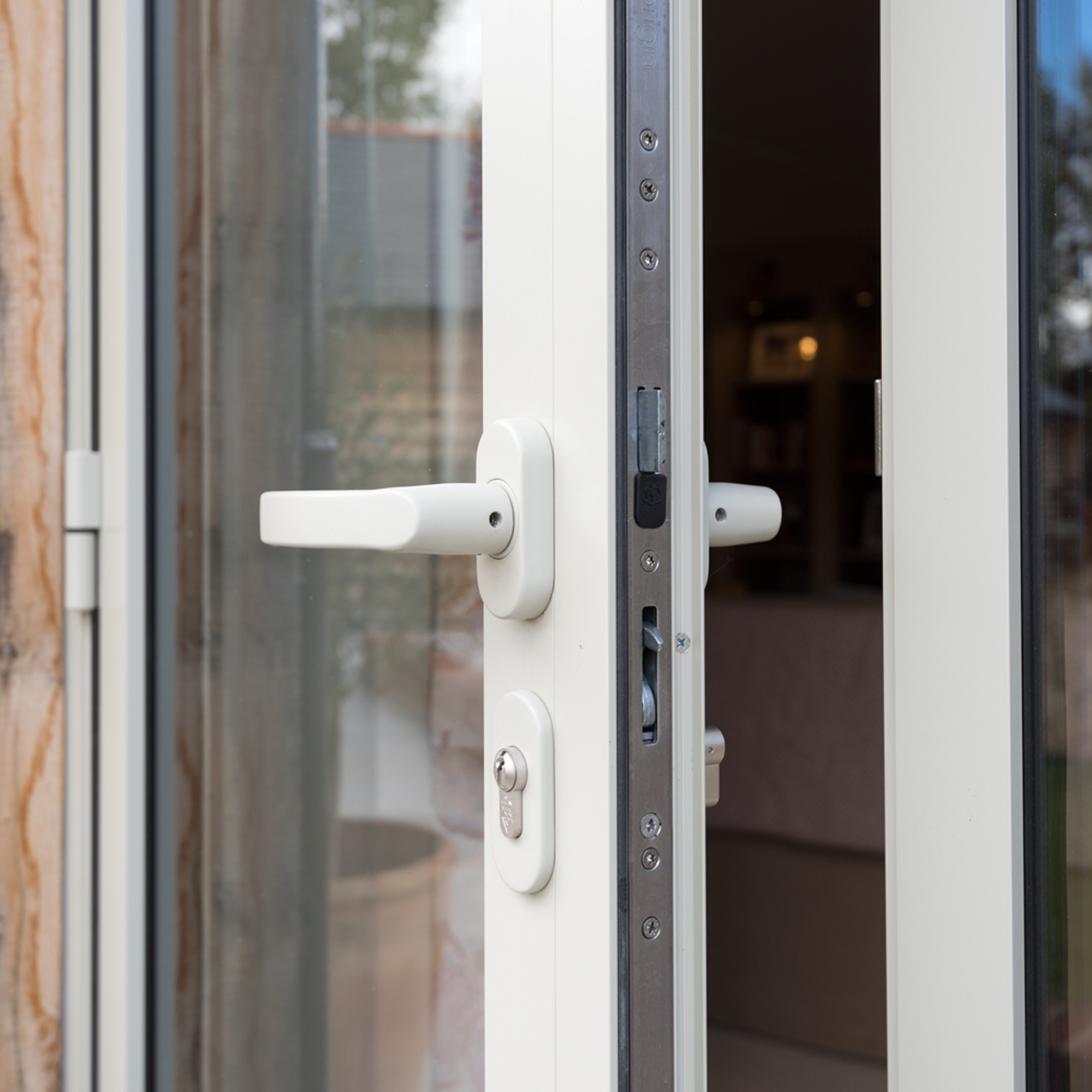
Door handles are often a sign to criminals that your home security isn’t up to scratch either. If your door handles are starting to become loose, then experts would recommend making an upgrade – you can even fit a door handle yourself if any need replacing. Nothing signals to a burglar that you’re skimping on security more than a handle in poor repair.
4. Doors or windows left unlocked
'Something that can also be easy to forget is making sure all entrances to your home, windows and all, are locked properly before going to bed or leaving the house for any reason, denying thieves any easy opportunities,' says Jonathan Wall, UK General Manager, Simplisafe.
The old cliche that an open door is an open opportunity is true. In the UK, nearly a third of homeowners don’t bother locking side and back doors or windows when they are going out – sliding doors to the garden can be particularly easy to overlook.
5. A dark back garden
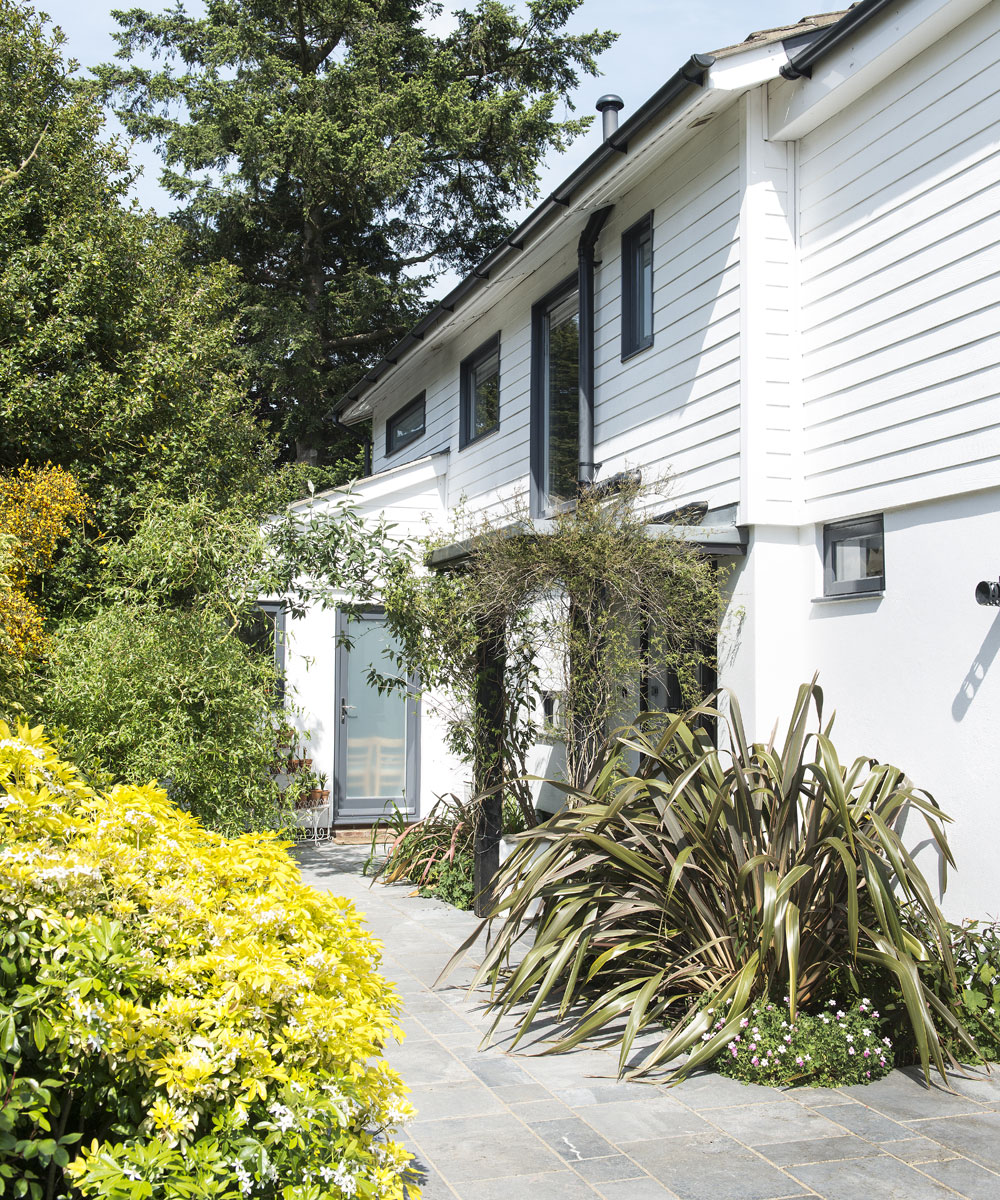
Back gardens need as much protection as your front door. In fact, back gardens with good side access without motion sensor-activated floodlights are a boon to burglars. Garden lighting ideas around the side and back of your property is therefore essential.
Security experts from Safe.co.uk recommend smart security lights that you can link to your phone. Like smart CCTV systems, a smart security light sends a message to the user if it has detected movement, meaning the owner does not need to be at home to have control of the situation.
6. Fencing that’s style over substance
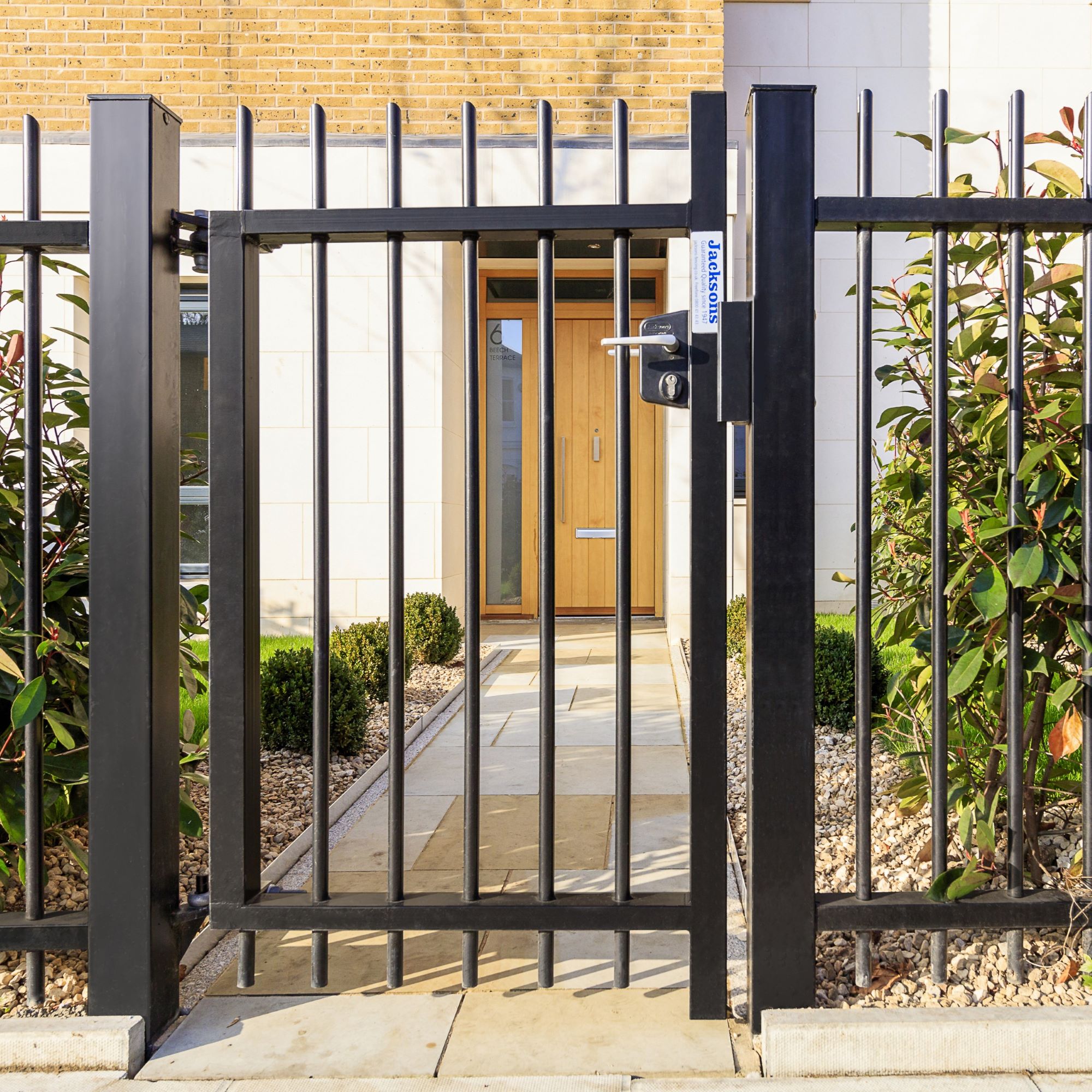
As security expert, Leigh Barnes from Jacksons Fencing explains, ‘too many fall into the trap of prioritising aesthetics, without considering quality and effectiveness. One of the main culprits of poor security design is generic steel palisade fencing, commonly used for houses that back on to public areas.’
Never pick a fence just because it looks good – consult a home security expert for an honest assessment of whether a particular type or style of fencing will actually do anything to protect your home.
7. Oversharing on social media
People can often put their home at risk by posting their whereabouts on social media. If your social media security settings aren’t up to scratch, anybody can have access to your account and discover if you’re out for the day, the weekend or even when you’ve jetted off on holiday. This means any burglar can enter your home virtually undetected and can even have a rough idea of when you’ll be returning.
More disturbingly, there is research that shows that burglars often are known to their victims, so you may need to be more careful about who you give access to your social media posts.
8. A house with a calendar in view
Calendars on smart phones are the common way of keeping track of our schedules these days, but many of us still like to write things down in a traditional calendar. And if your calendar is part of your kitchen wall ideas and visible from a window, you might want to move it.
Former burglar Michael Fraser said on This Morning, 'a lot of people put calendars up in the kitchen and a lot of them are filled with dates of when people are out. What the burglar will do is come round the back, have a read, and if he sees you're due to be on holiday, he'll come back.'
Be a bit more careful with what you're displaying, and give burglars no opportunity to strike when you're away.
How to prevent burglary - top tips
Armed with the knowledge of what burglars look for, you can make important changes to your home security to scare away burglars and prevent a break-in. These are the most important areas to consider when learning how to prevent burglary, according to experts.
1. Block the track in sliding doors

A top tip for burglary prevention that works great if you have sliding doors is to take a long handle wooden broom and saw the broom head off. Cut the length of wood so that it fits in the track of your sliding door, then place this in the track. Even if a burglar manages to break the lock, the door won't budge and they'd have to smash a window to get in - which burglars don't want to be doing.
2. Clean your alarm keypad
A top tip for how to prevent burglary which you might not be expecting actually involves reaching for the best cleaning products. Burglars can crack your alarm code if traces of your fingerprints are left on the numbers you key in, so make sure you're wiping it down frequently to avoid this.
'If you do have a digital alarm system, make sure that you are keeping it clean – if burglars know what digits you're using, they can easily work out your password as people are more likely to start with lower numbers and work their way up the keypad when it comes to numerical patterns', Michael Fraser explains.
So it's also helpful to think of a more complex passcode combination, so burglars won't be able to trace it easily.
3. Schedule deliveries for when you are home
'Often, delivery drivers may leave parcels on doorsteps or other “safe places”, assuming you’ll be home shortly to collect them', says Michele Bennett, General Manager, ADT. 'However, this is a clear indication to burglars that you aren’t home, and as such your property may become a target.'
Whether you’re ordering groceries, parcels, or even milk, having things delivered to an empty home is a dead giveaway to any would-be burglars in your area. Ensure that you schedule deliveries to arrive when you are at home, to avoid this problem. You can also opt for the parcel to be left with a neighbour if you're not going to be in.
4. Check gates for weaknesses
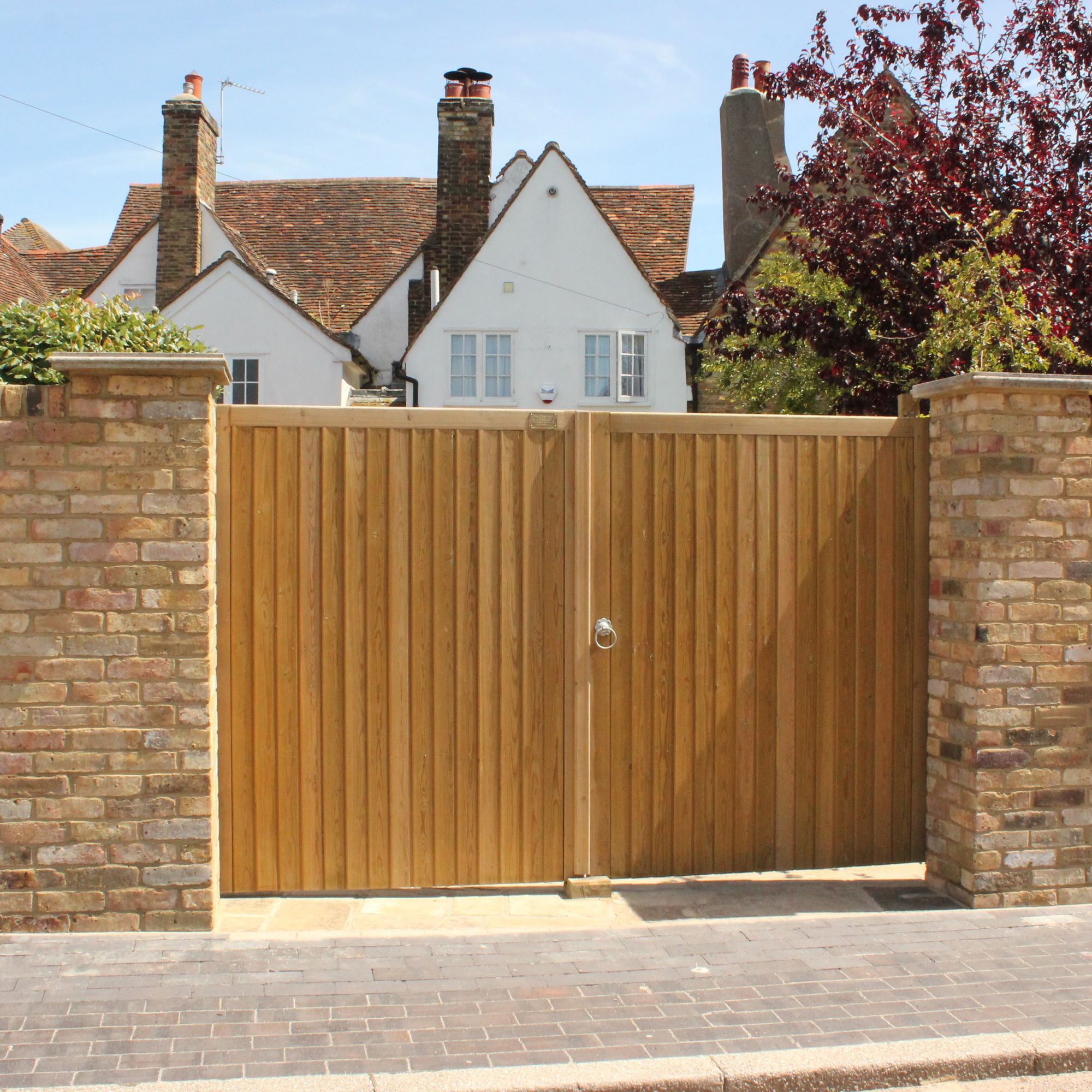
Make sure there are no areas of weakness in your garden railings and gates that burglars could capitalise on. 'Arguably the most important and effective measure you can take to keep your garden secure is to fit a garden gate lock,' says Ryan Calvert, Product Manager, Hiatt Hardware. 'Often overlooked, garden gate locks are a useful deterrent to thieves and are very cost-effective, depending on which locks you consider.'
‘Check back doors and gates around the perimeter of the home are locked and working effectively,' says Leigh from Jacksons Fencing. 'Ideally, hinges and locks should be galvanised to provide added protection against rust. Choose a gate where the hinge and gate sit closely together to deter people from using the hinge as a foothold.’
4. Create a living fence
A fence is good, but a fence with thorny or spiky plants on top is even better. ‘Let nature lend a helping hand in creating an effective anti-burglar boundary on your side of any fencing, and especially around any side access points. Stocking up on ‘‘defensive’’ plants such as Berberis, Hawthorn or roses can help create an impenetrable barrier that the majority of burglars won’t want to entertain,' suggests Leigh.
Just be careful about adding extra structures such as trellis on top of your fence. If this takes your fence to an overall height of over two metres, you will require planning permission.
‘However, growing a thorny plant along the top of a two-metre fence – provided it does not feature any support structures – does not require planning permission – unless there are local restrictions in place. Check with your local planning authority first.’
5. Invest in a good lock
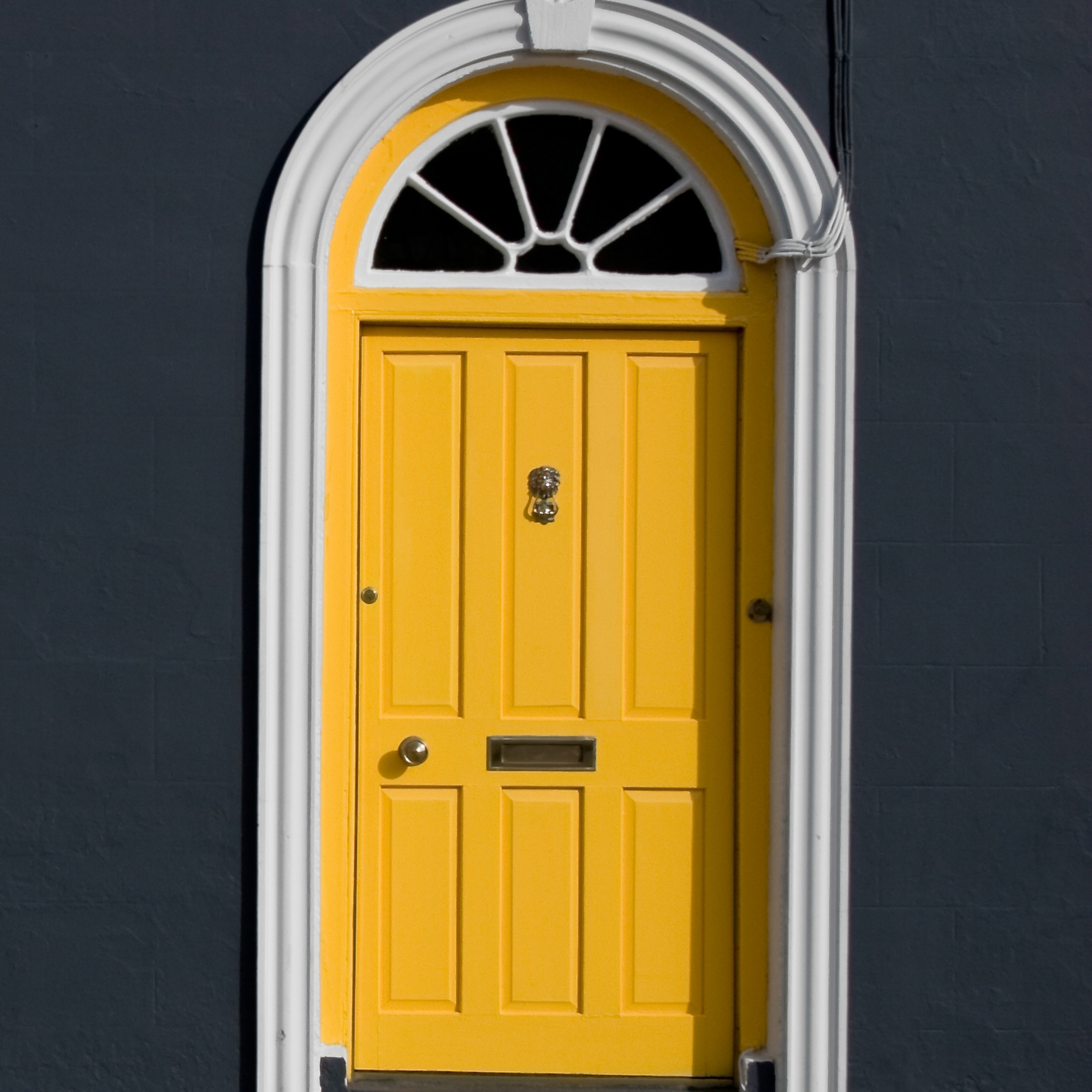
Lock snapping continues to be a threat, this is where an intruder gains entry by breaking the cylinder lock in your door, so the quality of your lock cylinders is more important than ever. Yale recommend checking that your cylinder is rated at TS007 3-star Kitemark and consider changing it if it isn’t as this assures you that it meets the standards set out by the BSI.
6. Look into extra front door security options
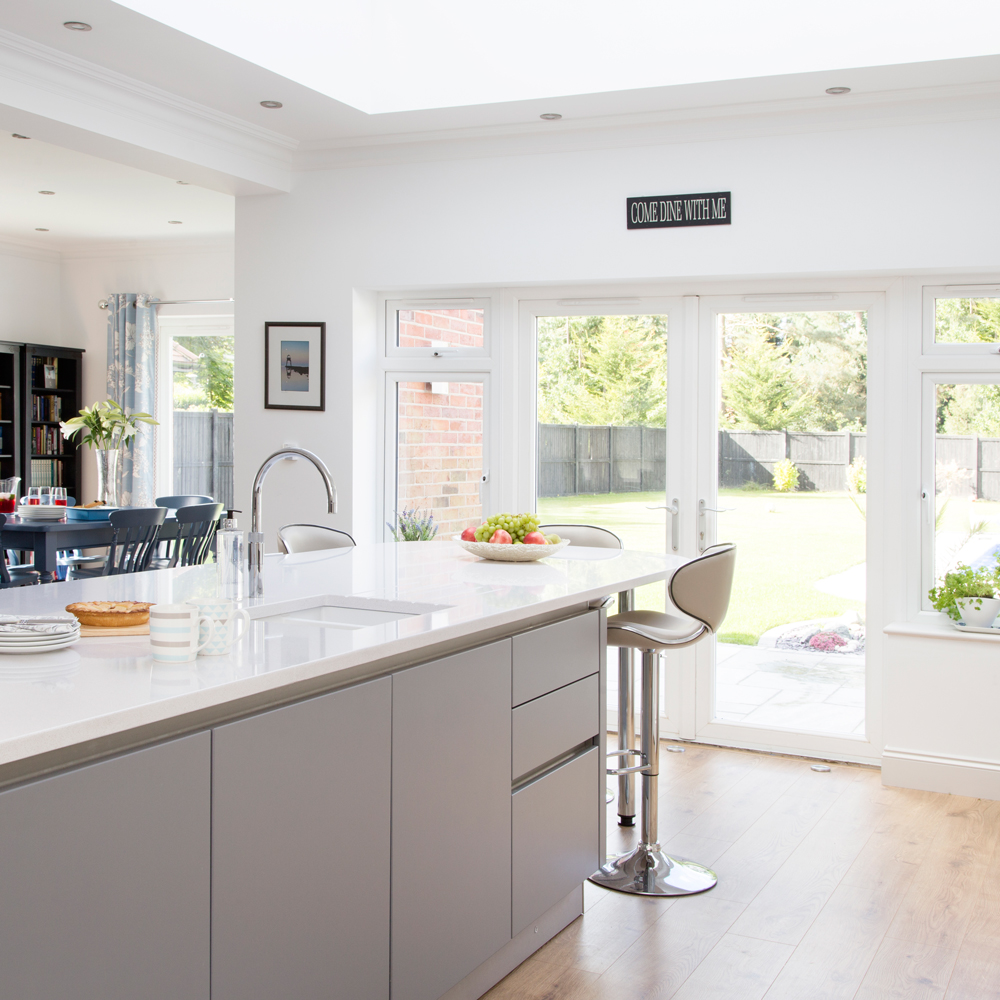
Upping the security of your front door is also paramount, so you should consider if additional security measures are required. A door chain can add protection again opportunists, whereas a letter plate restrictor can help prevent letterbox fishing. Having a visible security camera can also be a helpful deterrent, take a look at our best security camera guide for more advice.
7. Invest in a smart doorbell
The best video doorbells will instantly deter burglars approaching your house, because they enable to act quickly if you're not in. 'Video doorbells act as a great deterrent,' says Anthony Neary, Managing Director, Safe.co.uk. 'They record any activity and sends a notification to a chosen phone, giving optimum time to call the police, as well as having recorded evidence for insurance claims.'
8. Don't underestimate visual deterrents
Visual deterrents are a very effective way of keeping burglars at bay any time of the year, in fact, Which? Revealed that 71 per cent of burglars are put off by an alarm system having a visual siren, displayed on the outside of a home.
Considering a house alarm with a bell box or CCTV system can be a great way of reassuring you and your family that your home is securely protected at this time of year. Both home alarm systems and CCTV work as effective visual deterrents for burglars, causing them to move on to another target.
8. Lay a gravel pathway
It might sound simple, but anything that might make noise such as a gravel path will deter thieves. ‘Burglars prefer to work under cover of darkness and in complete silence when entering a residential property, so a trick to stopping them is to thwart this,' explains Robin Knox, Security Expert & CEO of smart home security company www.boundary.co.uk.
'Simply laying down gravel outside your house’s points of entry (doors, windows, etc.) will make them think twice about giving away their anonymity. Similarly, motion-triggered lights are a great deterrent to thieves wanting to slip in and out of your house unnoticed.’
What to do after a burglary at your house
Hopefully, if you follow all the steps above, you'll know how to prevent burglary and your home will stay safe from thieves. But in the unfortunate event that it does happen, follow the steps below:
- Call 101 to report the burglary. You’ll be given a crime reference number that you will need to quote to your insurer.
- Don’t touch anything. A burglary can feel very distressing and your first instinct may be to clean up all signs of the break-in. Don’t do this until the police have arrived and collected any evidence such as fingerprints from your home.
- Take photographs of any damage. Again, you will need this for insurance.
- If your wallet has been stolen, cancel all banks cards.
- Make a list of all the items that have been stolen and try to find any receipts you may have kept.
FAQs
What are burglars most afraid of?
'Remember to always keep your home security updated and in good working order, and maintain vigilance about your home's safety', says Marc Davis from Fast Keys. He outlines the following for what burglars are most afraid of:
- Getting caught: Visible security measures like CCTV cameras, alarm systems, and motion sensor lighting. Burglars typically want to avoid homes where they can be seen or captured on camera.
- Occupied homes: Most burglars prefer to target homes when the occupants are away. Therefore, any sign of someone being home can deter them. This includes lights or a TV on inside, cars in the driveway, or even noise from a radio.
- Dogs: While not a universal deterrent, some burglars may be put off by the presence of dogs due to the noise and potential threat they represent.
- Neighbours: Active, attentive neighbours can be a big deterrent for burglars. If your neighbourhood has a neighbourhood watch programme, even better.
Does leaving a light on at night deter burglars?
In a word, yes. Leaving a light on at night is an old-school burglar deterrent that has been proved time and time again to work.
'Lighting has the power to create the illusion that someone is always at home, which can be a fantastic deterrent for criminals,' confirms Somfy. 'The use of smart lighting allows the user to switch lights on and off remotely with ease.'
'Such lights can easily be pre-programmed to go on and off at specific times during the day, or alternatively can be controlled at any point with a simple touch of a button from a phone or tablet.’
‘Making it seem as if you are at home in the evenings will act as a deterrent to burglars,' adds Robin Knox. 'While we are not suggesting you go full Kevin McCallister, things as simple as putting your lights on a timer (either via a smart alarm or with a timer at the switch), leaving the TV or radio on, or even investing in a cardboard cutout to put in place of the window, can help give the impression you are in.’
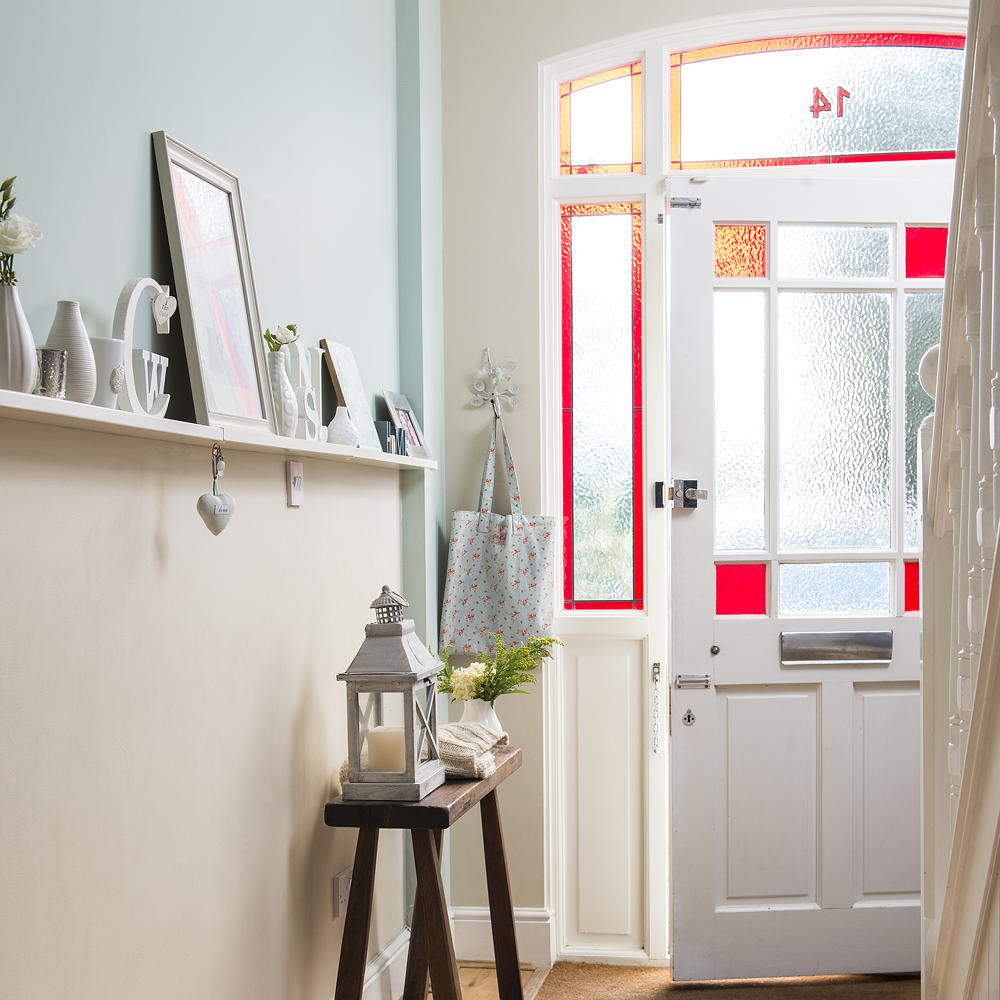
How can I make my house less attractive to burglars?
Visual deterrents like alarm systems, motion activated lights, CCTV cameras and even video doorbells will make your house less attractive to burglars. A strong security system makes getting caught much easier for them, which means they'll be more likely to leave your house alone.
'If a bell box or outdoor siren is installed on a house it usually means that there’s a burglar alarm inside the home, and some of these are connected to a professional monitoring centre where they can request police response,' says Jonathan from Simplisafe. 'These are great to help deter potential intruders.'
Make all the points of entry into your home unyielding, and again this will encourage burglars to move on. Doors should always have more than one lock, as this makes it twice as difficult for thieves to break in.
'Arguably the most important and effective measure you can take to keep your garden secure is to fit a garden gate lock,' says Ryan from Hiatt Hardware. 'Often overlooked, garden gate locks are a useful deterrent to thieves and are very cost-effective.'
Anna Cottrell is Consumer Editor across Future's home brands. She moved to the world of interiors from academic research in the field of English Literature and photography. She is the author of London Writing of the 1930s and has a passion for contemporary home decor and gardening.
- Katie SimsContributor